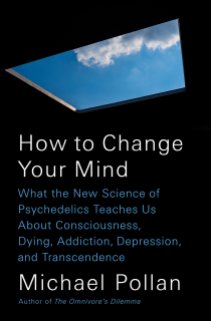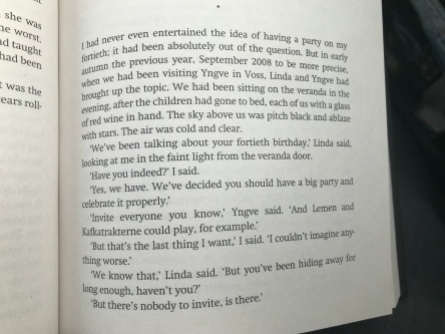Heather Havrilesky
How To Change Your Mind
Marry Him
Here I Am
The End
Outline Trilogy
That stability might be seen as the product of risk; it was perhaps when people tried to keep things the same the process of decline began.
—Rachel Cusk, Transit (p. 224 of the Outline Trilogy)
I became aware of this feeling of having deserted my own life, as once I would desert my room; and I was suddenly filled with the most extraordinary sense of existence as a secret pain, an inner torment it was impossible to share with others, who asked you to attend to them while remaining oblivious to what was inside you, like the mermaid in the fairy story who walks on knives that no one else can see.
—Rachel Cusk, Outline (p. 174 of the Outline Trilogy)
Instead they have grown older at a distance; when he speaks to her he imagines quite clearly the life they would have had, the life they would be sharing now. It is like walking past a house you used to live in: the fact that it still exists, so concrete, makes everything that has happened since seem somehow insubstantial. Without structure, events are unreal: the reality of his wife on the telephone. Yet the life without limitations has been exhausting, has been one long history of actual and emotional expense, like thirty years living in one hotel after another. It is the feeling of impermanence, of homelessness that has cost him. He has spent and spent to rid himself of that feeling, to put a roof over his own head. And all the time he sees at a distance his home — his wife — standing there, essentially unchanged, but belonging to other people.
—Rachel Cusk, Outline (p. 18 of the Outline Trilogy)
Truly Look Into One Another’s Eyes
‘Lay bare our souls’? Yes it’s strange. We socialize, live and toil side by side: companions, lovers, colleagues, childhood friends and yet we know so infinitesimally little about each other and so seldom see each other. Truly look into one another’s eyes. And we’re so fearful whenever it happens. I’ve attempted to change this over the years and try to look into other people’s faces, make a conscious effort to meet their gaze to see what is going on, but also because I desire reality, intensity, life, which is something to do with the fact that I’m getting older, and was as you know, sixty last autumn, and I want everything to be real, tangible. I don’t want to squander the time I have left on sleepwalking through life.
–Fredrik Eklund, Home and Away (p 20)
What do you do when you don’t look someone in the eye?
You defend yourself.
Against what?
Well, against life, of course.
It is so damned hard to live.
Nothing of what you’ve written so far has given me greater pleasure than what you said about life having to be real, genuine, alive, intense and how you have started looking in people’s eyes in a different way from before. Something opening, not closing. You want to keep the world open. You want to appreciate what is in it. Because you know you don’t have long left. Then it is over. Then it is no more and there will never be anything more. It is only now, and it is now or never.
Nevertheless, I look down, I hide.
I don’t initiate conversations with people on places, I hardly ever talk with my neighbours, and if I do it is the intention of getting away, which of course they notice because it is reflected in your body language.
–Karl One Knausgaard, Home and Away (p 31)
A Revelation
Just for today, I will adjust myself and not try to manipulate the situation.
I think about all the time I spent vigilant, preoccupied, trying to decipher my mother’s relationship with Marcus, Lucy’s relationship with alcohol. It had never occurred to me to that both situations were whatever they were, whether I figured them out or not. And it certainly never crossed my mind that my reaction — my suffering — was mine: something I had come up with, not something I needed to blame on anyone else.
My job is to interpret, and to communicate my interpretation persuasively to other people. The idea that in life, unlike in writing, the drive to analyze and influence might be something worth relinquishing was to me a revelation.
–Ariel Levy, The Rules Do Not Apply (p 188)
This Is Not Just Surprise And Pleasure
This is not just surprise and pleasure.
This is not just beauty sometimes
too hot to touch.
This is not a blessing with a beginning
and an end.
This is not just a wild summer.
This is not conditional.
–Mary Oliver, “What This Is Not,” from Felicity
Every Day Has Something In It Whose Name Is Forever
Everything that was broken has
forgotten its brokenness. I live
now in a sky-house, through every
window the sun. Also your presence.
Our touching, our stories. Earthly
and holy both. How can this be, but
it is. Every day has something in
it whose name is forever.
–Mary Oliver, “Everything That Was Broken,” from Felicity



























